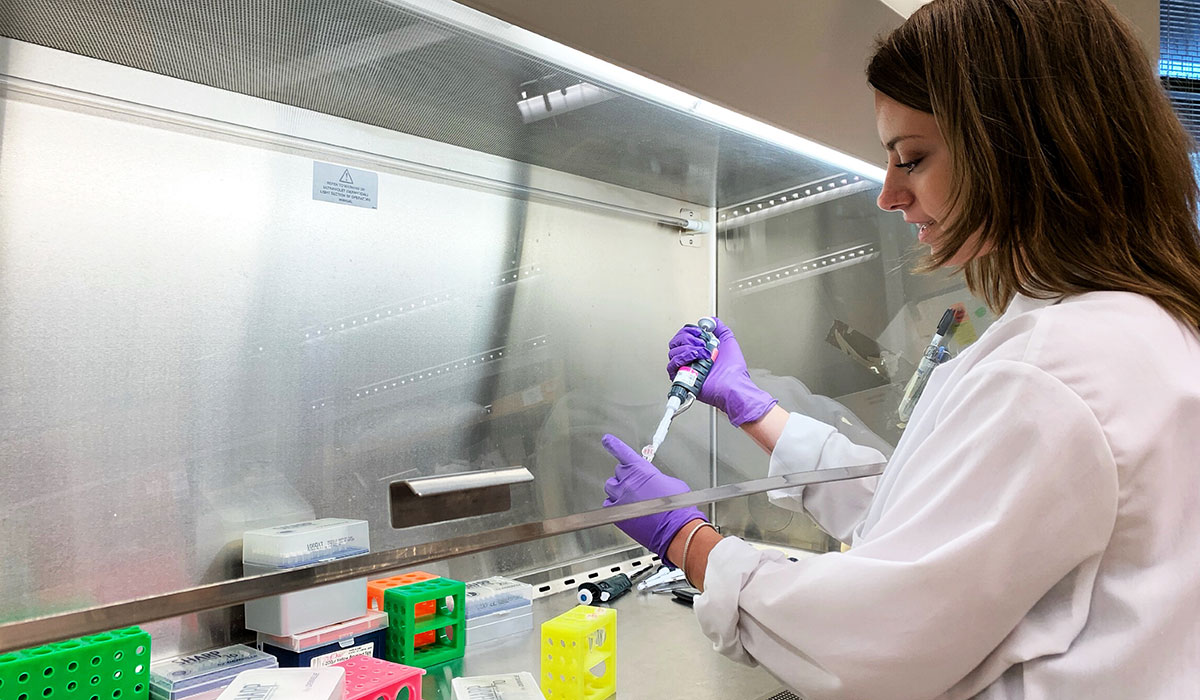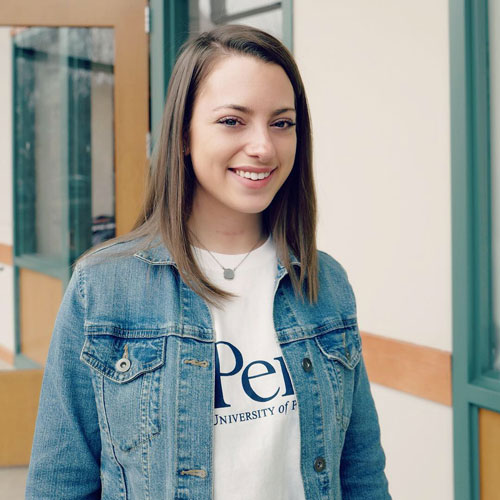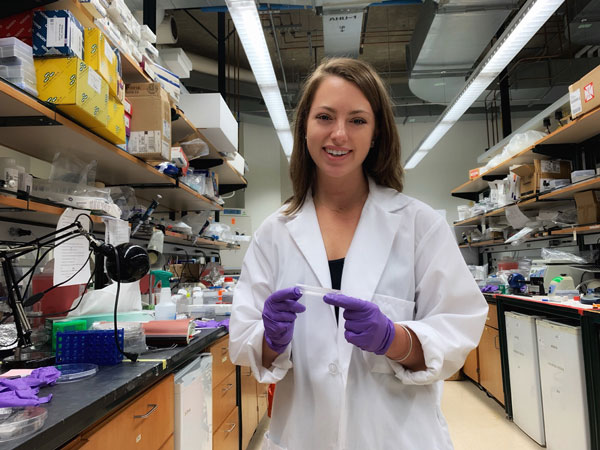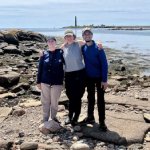

Challenges are no longer insurmountable for Amanda Finck ’17.
After overcoming a health scare following her first semester at Gettysburg College, her courage and confidence to pursue new ideas grew exponentially.
Since being awarded a $138,000 scholarship by the National Science Foundation (NSF) Graduate Research Fellowship Program in April, she now plans to attend the University of Pennsylvania next year to pursue a PhD in immunology, a field that hits close to home.
 The biology major almost turned away from the sciences before she discovered her anxiety, lack of focus, and poor memory were due to Graves Disease, an autoimmune disorder that causes an overactive thyroid, which produces excess T3 and T4 hormones.
The biology major almost turned away from the sciences before she discovered her anxiety, lack of focus, and poor memory were due to Graves Disease, an autoimmune disorder that causes an overactive thyroid, which produces excess T3 and T4 hormones.
Finck took a leave of absence during the 2014 spring semester to remove her thyroid and recover. She felt discouraged given her recent academic challenges. However, her home practitioner encouraged her to try again, convincing her that her trials were due to the thyroid.
When Finck returned to Gettysburg the following fall, her grades went “from F’s to A’s.”
“It felt rewarding to be loved back by the subjects I had loved growing up,” she said.
Finck, who graduated Magna Cum Laude in December of 2017 as a biology major with a chemistry minor, currently works as a post-graduate research assistant in the biomedical engineering department at Yale University. She wrote her first grant idea as part of the application process for this prestigious fellowship program.
 “At the time, I remember being upset that two small hormones derailed my first year as a college student, but I was also so intrigued by the inner workings of the immune system,” Finck said. “Writing this grant helped me make that leap to no longer be afraid of asking new questions and investigating my own curiosities. To put the grant together was a truly rewarding process, but to receive it felt like positive reinforcement that I should continue exploring my own ideas.”
“At the time, I remember being upset that two small hormones derailed my first year as a college student, but I was also so intrigued by the inner workings of the immune system,” Finck said. “Writing this grant helped me make that leap to no longer be afraid of asking new questions and investigating my own curiosities. To put the grant together was a truly rewarding process, but to receive it felt like positive reinforcement that I should continue exploring my own ideas.”
Now as an NSF fellow, with her own five-year grant in addition to the fully-funded PhD program, more doors have opened for Finck. She is currently working on research related to developing a better understanding of how single-cell biology relates to disease, such as cancer, and treatment.
“UPenn is one of the best institutions for cancer immunotherapy and cellular engineering research,” Finck said. “I would love to leverage my funding source to find the perfect environment to explore some cellular engineering ideas I’ve had, but never had the time, place, or courage to investigate.”
By Megan Miller
Posted: 06/26/19


